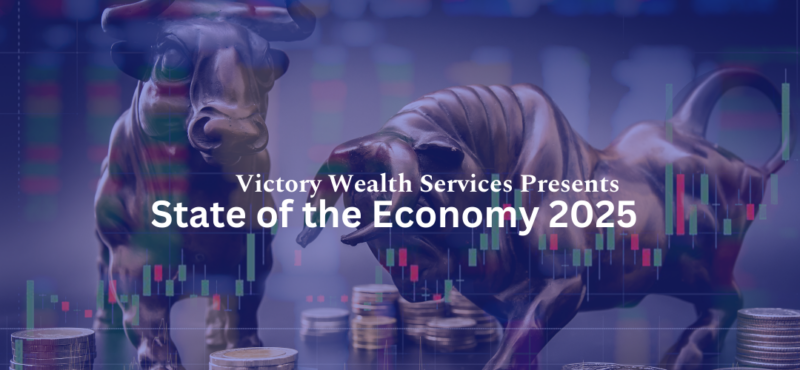In normal times, the stock market is often a reflection of the economy. But these are not normal times. Even though April was marked by a global shutdown of businesses, rampant unemployment and low economic growth, the S&P 500 Index ended the month up 12.9%. This represented the highest one-month gain since 1987 and posted the fastest recovery of the fastest bear-market decline in 90 years.1
It’s been a difficult time for investors, faced with the question of whether they should sell or “stay the course.” A lot depends on where you are in your timeline for achieving financial goals. You may have lost money and then regained it. You may have lost money and chose to sell. If you are near or in retirement, and unsure what you should do now, give us a call. We have many different options available to help you pursue your goals, and will help you create a financial strategy designed for your individual situation.
While the stock market and economy have an enormous influence on each other, it’s important to recognize stock prices often are driven by irrational emotions. Moreover, stock prices are forward looking, meaning they bet on future corporate profits, which do not necessarily take into account a correlation with organic growth. A good example of this was demonstrated by the 2017 corporate tax cut. Many companies used the increase in corporate earnings to buy back stocks and/or pay out dividends rather than invest in growth or worker income.
Recent volatility in the stock market is largely a result of investor optimism that the economy will survive the pandemic, followed by pessimism that it may take longer than hoped. Much of this is driven by government actions, such as the unprecedented consumer stimulus and small business “grants,” as well as the various closing and reopening phases of economies on a state-by-state basis.2
Stimulus actions may provide short-term relief, but also present a long-term drag on the economy. Reduced demand of common products and services may help ward off inflation, but the risk of deflation is just as damaging. Deflation is caused by a sustained period of falling prices, in which lower spending causes businesses to reduce staff and wages — as if that isn’t already a problem. Since consumer spending is one of the key drivers of the U.S. economy, this could lead to a long road to recovery.3
This brings us back to the stock market, with its eccentric performance that appears driven more by investor superstition, optimism and uncertainty rather than actual fundamentals. Longer term, asset prices will presumably begin to reflect the future fortunes (or losses) of corporations. It’s hard to see a scenario in which a wide swath of companies will thrive in the near term, with certain exceptions (like whichever pharmaceutical companies develop a COVID-19 vaccine).
For now, it’s important to view your portfolio within the scope of your financial goals and timeline for achieving them, as well as your risk tolerance. It’s easy to fall under the spell that a high-performing stock market will continue despite occasional blips, or that we’re in for negative returns for the foreseeable future. Regardless of which side of investor sentiment you fall on, stock market data is the same for everyone. The only differentiation is your own personal view of what will happen next.4
Meanwhile, health experts warn of a potential ramp up of contagion in states that reopen too quickly and/or in the fall when flu season commences. Given this possibility, any moves you take right now may be short-term; your view may change again if and when this actually happens. It’s possible we could have a short-term recovery, and long-term investors may want to stay in the market for exposure to that. But no one can accurately predict when the stock market could drop precipitously again, so bear that in mind.5
1 John Persinos. Investing Daily. May 4, 2020. “Economy Down, Stocks Up: Why The Disconnect?” https://www.investingdaily.com/55655/economy-down-stocks-up-why-the-disconnect/. Accessed May 5, 2020.
2 Barbara Kollmeyer. Marketwatch. May 5, 2020. “This is the trap awaiting the stock market ahead of a grim summer, warns Nomura strategist.” https://www.marketwatch.com/story/this-is-the-trap-awaiting-the-stock-market-ahead-of-a-grim-summer-warns-nomura-strategist-2020-05-05. Accessed May 5, 2020.
3 Paul Davidson. USA Today. May 3, 2020. “Besides millions of layoffs and plunging GDP, here’s another worry for economy: Falling prices.” https://www.usatoday.com/story/money/2020/05/03/coronavirus-us-deflation-falling-prices-new-economic-risk/3070084001/. Accessed May 5, 2020.
4 Knowledge@Wharton. Jan. 14, 2020. “How Superstition Triggers Stock Price Volatility.” https://knowledge.wharton.upenn.edu/article/wachter-superstitious-investors-research/. Accessed May 5, 2020.
5 Matt Egan. CNN. April 16, 2020. “The stock market is acting like a rapid recovery is a slam dunk. It’s not.” https://www.cnn.com/2020/04/16/investing/stock-market-dow-jones-recession/index.html. Accessed May 5, 2020.
We are an independent firm helping individuals create retirement strategies using a variety of insurance and investment products to custom suit their needs and objectives. This material is intended to provide general information to help you understand basic financial planning strategies and should not be construed as financial or investment advice. All investments are subject to risk including the potential loss of principal. No investment strategy can guarantee a profit or protect against loss in periods of declining values.
The information contained in this material is believed to be reliable, but accuracy and completeness cannot be guaranteed; it is not intended to be used as the sole basis for financial decisions. If you are unable to access any of the news articles and sources through the links provided in this text, please contact us to request a copy of the desired reference.


